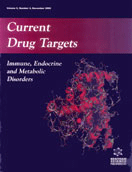Abstract
The latest developments in the molecular and cellular mechanisms that underlie Echinococcus infection have renewed interest in the immunodiagnosis of this disease and have helped in understanding the host-parasite relationship. This review discusses current concepts on the immune response to Echinococcus granulosus in humans, and relates these findings to diagnosis and clinical management. The two most promising molecular tools developed for the immunodiagnosis of cystic echinococcosis involve isolating native or recombinant parasite antigens to detect specific serum antibodies in patients with suspected echinococcosis and producing monoclonal antibodies to detect parasite antigens in clinical samples. Novel drugs should be designed to strengthen host immune responses thus combating parasitic survival. Currently, attention has been focused on understanding T-helper lymphocyte activity; in particular the role of Th1 and Th2 subsets in orchestrating immune responses. The Th1/Th2 model explaining how selective immune responses -- including cell-mediated or humoral immunity -- develop, seems promising as the rationale for molecular tools that could lead to new therapeutic strategies.
Keywords: Echinococcus granulosus, immunodiagnosis, molecular/cellular tools, recombinant antigens, monoclonal antibodies, Ige, Th1/Th2 lymphocytes, cytokines
 1
1


















